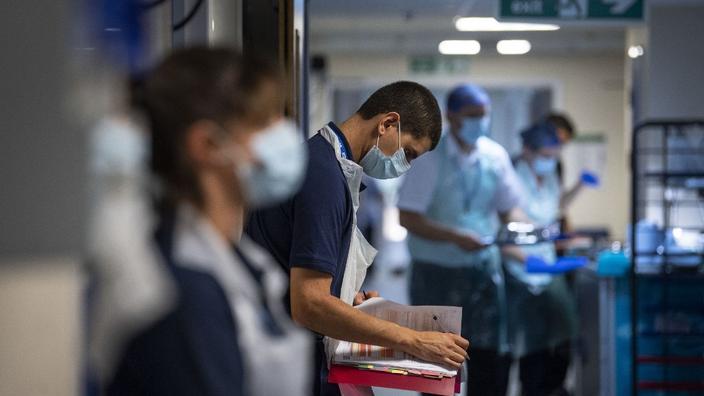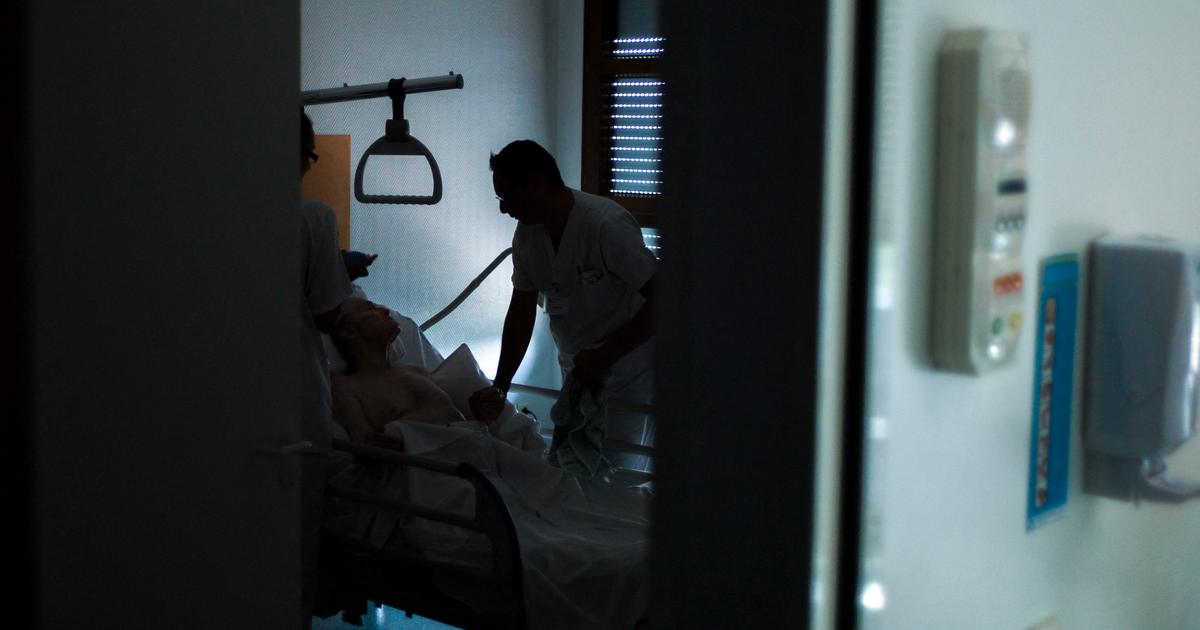“
As soon as the second wave ended, I had nightmares, panic attacks, insomnia, mood swings.
My personal life was falling apart.
I had suicidal thoughts
, ”says Joan Pons Laplana, ex-nurse of the NHS, the British health system.
This 46-year-old Catalan, who has lived for two decades near Sheffield, in the north of England, had already burned out before the pandemic.
Intense work pressure during the waves of Covid-19 caused him, like thousands of other NHS workers, to quit to protect his mental health.
Read alsoCovid-19: more than 150,000 dead in the United Kingdom since the start of the pandemic
Some 33,000 NHS medical staff quit between July and September 2021, including nearly 7,000 in search of a better life balance, according to official statistics. That's nearly double the last quarter of 2019, just before the pandemic.
The long shifts, the stuffy equipment, the risk of catching the virus and contaminating his wife or children, exhausted the ex-nurse.
He did not know most of his teammates assigned, like him, to intensive care.
“
I saw a patient of my age say goodbye on an electronic tablet to his daughter who was the same age as mine.
Moments later he was dead.
I started dreaming about the patient's eyes at night.
My therapist diagnosed me with post-traumatic stress disorder
,” he recalls.
Joan left one day in the middle of a service meeting and never came back.
He now works for a job access program for young handicapped or disadvantaged people.
More than 50% of caregivers are looking for a new job
Akshay Akulwar has not yet resigned from his position as a surgeon in the east of England, but he is wondering whether to go work elsewhere: New Zealand, Australia, where the salaries are better, or even return to his country of origin. origin, India. He denounces the accumulation of long shifts. “
Slowly it is impacting your well-being, your availability for your family. We begin to feel the burn-out, to work less efficiently
“, without knowing until when it will be necessary to hold, explains the one who is also spokesperson for DAUK (Doctors association of United Kingdom).
According to a survey by the union Unison, more than two-thirds of medical workers suffered a burnout during the pandemic and more than half worked beyond their contractual hours.
Result: more than half of the sector's employees are looking for a new job.
“
The NHS was already short of around 100,000 people before the coronavirus
”, after a decade of austerity.
“
The pandemic has increased the pressure on medical workers and many are tired of it
,” insists Sara Gorton, a manager at Unison.
Faced with the lack of arms aggravated by the Omicron variant, several hundred soldiers were deployed as reinforcements in hospitals and ambulance services.
“I felt treated like a number”
Bill Palmer, from the Nuffield Trust think tank, notes a growing trend of resignation since 2016, but which came to a halt during the first year of the pandemic: "
People felt they had to hold on and it was more difficult to find a job elsewhere
. He notes that for six months resignations have started to rise again. Some leave because of the vaccination obligation, but many highlight the pressure in services that are permanently understaffed or a feeling of not being valued in their proper measure.
Alex, a psychiatric nurse - he does not want to give his full name - has seen his workload increase by 25% during the pandemic, with more patients and more responsibilities. “
I felt treated like a number. I started to feel depressed
,” he told AFP. He decided to retrain and now works for an organization that helps victims of modern slavery and domestic violence. “
I receive equivalent remuneration but I experience less stress and my work is appreciated
,” he confides.
In lower-skilled medical professions, meager pay adds to the incentive to leave, while other sectors that are understaffed, such as distribution, raise wages to attract new employees.
Whatever their reason, these resignations aggravate the delays in care accumulated by the health system: they reach records and weigh on the chances of survival in the event of accidents or serious illnesses.









